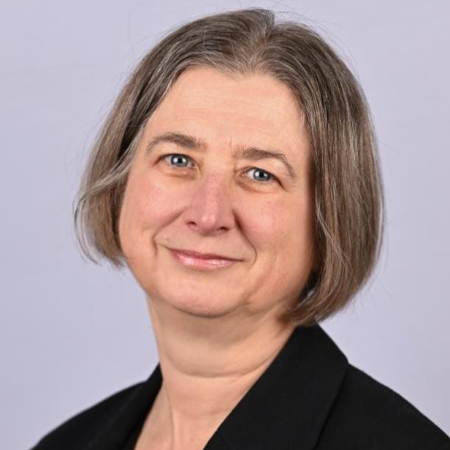Keynote: Elecnor’s long distance runner approach to structured finance
Angela Perez, head of structured finance at Elecnor spoke to TXF both about the Spanish infrastructure and engineering company’s response to the current crisis, and the wider role teamwork across the industry will play in the recovery.

TXF: How are you expecting the current Covid-19 crisis to impact export finance at Elecnor?
 Angela Perez (AP): We are now many weeks into this new reality in which we are currently living, and although we now have more elements in place to do certain [types of] analysis than we had at the beginning of the crisis, we still have many uncertainties.
Angela Perez (AP): We are now many weeks into this new reality in which we are currently living, and although we now have more elements in place to do certain [types of] analysis than we had at the beginning of the crisis, we still have many uncertainties.
In Elecnor, the corporate teams have been working – better said teleworking – from the very beginning of the crisis to keep activity going, with a priority on finishing and assuring issues that were in a mature phase. And we have succeeded. For example we have got into force the Kwanza North Transmission project, a UKEF Angola project, where some of the final parts of the export finance deal could be done when we were already working from home.
It is true that some bidding processes have being delayed and, very few, cancelled. But we continue working in commercial proposals and financial offers, as there are processes, even new ones, to prepare. With a lot of these large projects, they have the momentum of inertia, so movement is still happening and the past couple of weeks have been crucial to test that it was not just inertia, but the firm willingness from some governments and companies to keep the activity going for the future.
What is obvious is the worst impact now is in the construction works. The physical execution of projects is conditioned by legal restrictions, health measures, supply difficulties or lock downs. Having said that, although Covid-19 is a planetary phenomenon, the situation it is not as bad in all regions and in all countries so our important geographical diversification is also contributing positively to cushion difficulties.
What is going to happen in the future will depend on the severity of the economic crises and this is still to be seen. But for the time being, looking at my pipeline, I am inclined to think of a delay of deals and slowdown in processes this year more than a lack of deals, particularly if banks, ECAs and multilaterals are ready to provide financing.
TXF: That’s interesting to hear, are banks responding well to what you need?
AP: I have nothing more than good words for our bankers. They are supportive and helpful and I know the teams are doing as much as they can to deliver on time, from term sheets or letters of credit to credit disbursements. It is true that Elecnor is a strong name with a solid financial situation and strong banking relationships, which is a good position to face the current situation. For our activity it will be crucial to see how they react in the future when some of the borrowers present a worse credit risk.
Commercial tranches in export finance probably will be impossible in some cases and ECAs and private insurance will have to be there with increased limits.
TXF: How has working with ECAs been over the period?
AP: We have a working relationship with the major ECAs across Europe. I have contacted some of them in the last few weeks, checking their appetite for particular new transactions and the answer has being quick and positive. We’ve also been working as usual on existing transactions with CESCE and UKEF.
I have been seeing most ECAs announcing measures to help their national exporters to overcome the immediate impact of the crisis. Most efforts seem to be focused on alleviating the sort term liquidity problems, which is logical. But we want to see what is next, for what is called ‘the reconstruction phase’ by some our politicians. What will the ECAs’ support for new and existing long term transactions be, particularly if borrowers deteriorate their risk profile because of the crisis?
So there are two main things we are going to need from ECAs: higher risk acceptance and volume of support. I know it is not easy if ECAs are facing paying an enormous amount of claims if borrowers default. But this is the dilemma our governments and supranational institutions will have to resolve if the economic wheel has to continue in motion.
TXF: Are you still able to focus on issues that were top of mind at the beginning of the year, such as sustainability?
AP: After many years working in the infrastructure sector, I see this business and myself as long distance runners. Not only because our deals take time to mature but because infrastructure has a great impact in nature and people’s life so you can only perform adequately if you have a long-term commitment with your activity. For Elecnor sustainability is part of our DNA, so there is no change in our plans because of Covid-19, only reinforcement.
For a company like us that is bringing electricity, water or ADSL to people who need it, or developing renewable energy projects, it’s a mission that’s central to our activities. And this crisis is about health and safety, a core area in our CSR. I believe this traumatic experience is going to bring more momentum if possible to the commitment to sustainability in the world because it has united the whole society in a common objective, to fight against the virus, but also created awareness on many aspects of our way of living.
TXF: Which deals have stood out for you for sustainability over the past year?
AP: We are state of art in the standards we apply, which are the same everywhere, we have our benchmark and we don’t go below it. Our procedures and practices fulfil the IFC E&S performance standards, the Equator Principles, the OECD Consensus requirements, we are committed with the SDGs and part of the UN Global Compact.
So all our deals are remarkably sustainable but if you ask me about particular deals over the past year, I would refer to the Pokuase electrical substation in Ghana for the Millennium Development Authority (MiDA), financed by MCC, project in which we have applied the most severe measures we have ever seen to avoid negative impacts to the population during construction. This new infrastructure will help to stabilise the supply of electricity to individual consumers and to businesses. Or the electrification project for the Kwanza North Province in Angola I mentioned, providing infrastructure which will end up in more than 7,000 power connections, providing not only the right environment for attracting investment in this province but also improving the life of the population.
TXF: Are you working with US Exim on deals?
AP: We are already in a dialogue with US Exim and keen to get familiar with their practice. One question we’d like to understand better is how they define US content and eligible content.
TXF: Covid-19 notwithstanding, is this an opportunity for companies to see how relevant export finance can be to help deals happen?
AP: It is clear that we are going into a global economic crisis again, we will see whether it is short or not, but I strongly believe export activity has to be one of the variables in the solution, as it was in 2008. All developed countries have being trying hard to increase their export activity in the past decades for different reasons and I think these reasons, both political and economic, remain.
Our domestic markets will have to recover now as well and therefore call the attention of our governments with public support. But to defend our domestic jobs we also need to continue with our international activity. For Elecnor, as an infrastructure and engineering firm, our main markets will remain the same in the post-Covid-19 era, as the needs for electricity and water in the world have not changed. So definitively, yes, export finance is going to be even more relevant because our customers, both private and public, will need financing more than before. Corporates like us, financial investors, banks, ECAs, private insurers and development institutions will need to work jointly to propose suitable solutions in a difficult and extremely competitive environment.
TXF: Do you think this will boost blended finance between DFIs and ECAs?
AP: I’ve not seen much DFI and ECA blended finance yet. The fact that ECAs are tied institutions and the DFIs in general are untied is one of the reasons it is not easy for them to find a way together. But definitely they should work on financing structures that make both souls compatible. The idea that development and supporting exporters is not compatible, [whether] we share it or not, is overcome by reality, so we had better face it and do it right.
I would also like to see not only ECAs working together with DFIs but also with multilaterals in public sector projects. I have seen situations too often where main public sector projects are duly financed by multilaterals with pending spin-offs or complementary projects that will end up with ECA financing in a second stage. We've seen electricity networks with not enough electricity transportation because of the lack of demand or underused generation capacity because of the lack of transport facilities to end users. I wonder if there could be a master plan from the beginning to benefit the synergies of developing all necessary projects with different financial solutions at the same time to have a more efficient use of resources.
So answering your question, yes I hope that if the unfortunately bad forecasts are fulfilled and project and export financing struggle, ECAs and DFIs join forces to create new solutions. Probably it will be easier in project finance structures with private customers but hopefully for the public sector as well.
TXF: Will this require a change to the OECD Consensus?
AP: Obviously the OECD provides some inflexibility to structure project finance deals in an efficient manner with commercial banks and/or DFIs, so OECD changes would help. Definitively, some public borrowers particularly in Sub-Saharan Africa will have problems with their debt sustainability and require longer tenors, lower price and better repayment terms than the OECD Consensus. It would be great if some flexibility were applied at least temporarily. But to me at this moment, more important than changing the rules, if the discussion takes too long, is the willingness of all the players in the sector to take risks and work in association with others.





